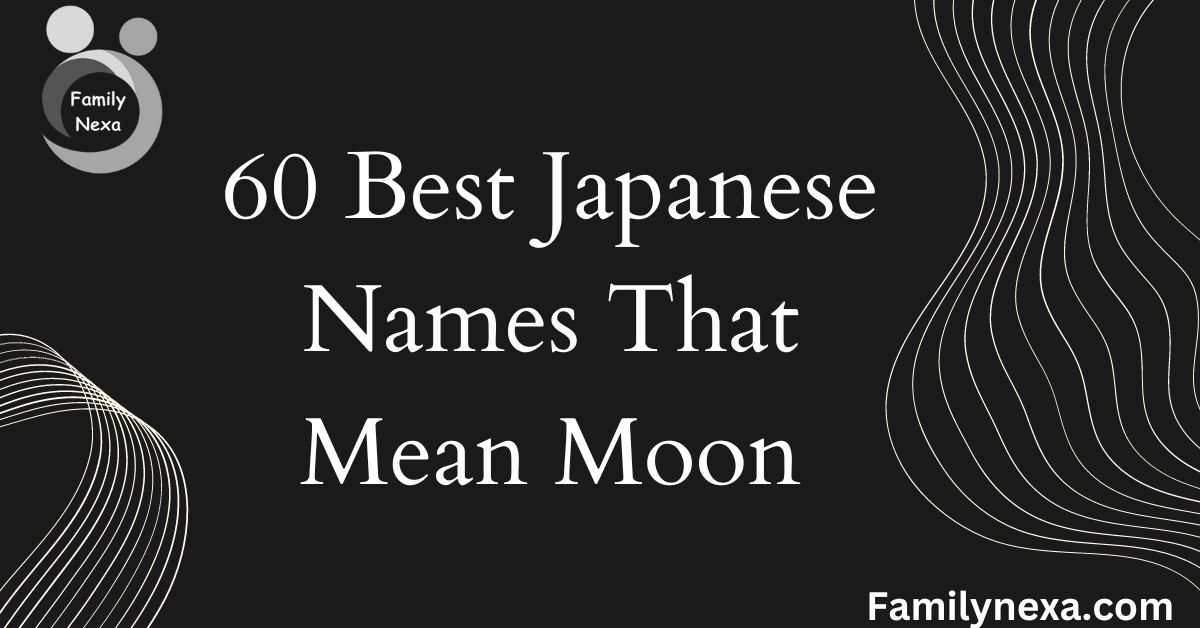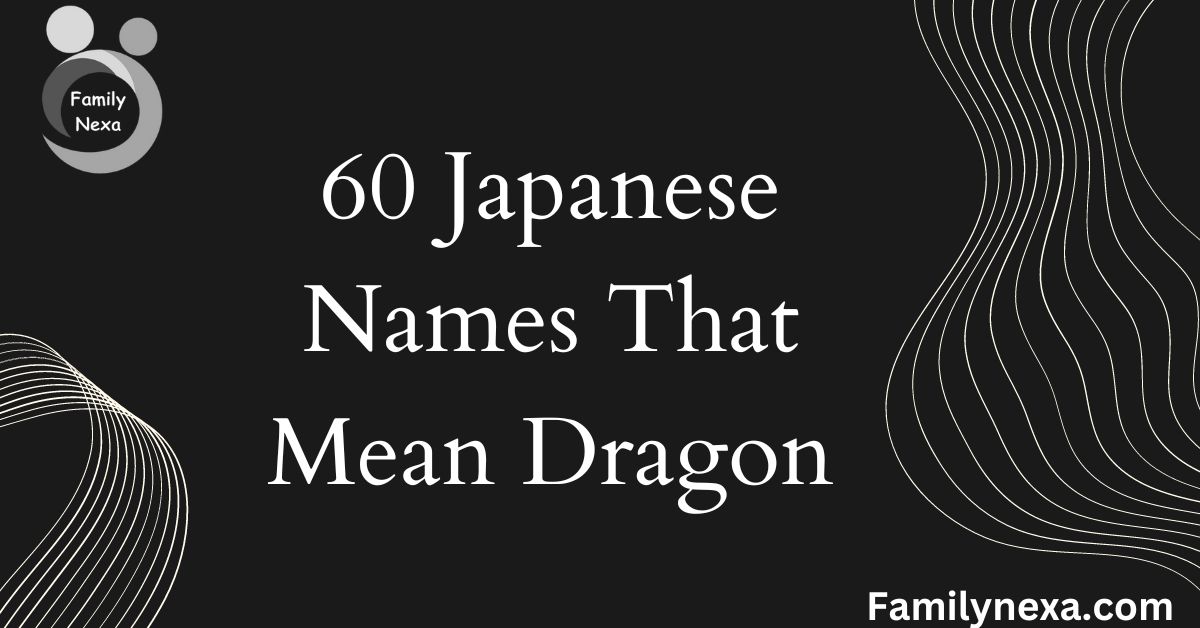Go beyond common names and explore rare Kanji characters. Uncover wonderfully quirky and poetic words from nature, like forest or flower. Choose from lesser known gods and heroes to give your child deep ancestral ties.
Finding the perfect name for your baby is so important. For parents seeking a Japanese name, you want something special and meaningful. But popular Japanese names like Hiroshi or Hanako are everywhere. In this article, discover 170 wonderfully unique Japanese names for boys and girls.
You can also pick truly funny and cheeky Japanese names to bring constant smiles. Each name here comes with its kanji writing, phonetic reading, and symbolic meaning in Japanese culture.
So explore these 170 exquisite, eccentric, and extraordinary Japanese names. Discover the profound meanings that go far beyond plain Jane choices. With the right rare find, you can give your baby a truly magical Japanese name to carry through life.
70 Strangest And Unique Japanese Baby Names
30 Rare Japanese Girl Names
1. Himari
- Kanji: (陽葵)
- Pronunciation: Hee-mah-ree
- Meaning: Combining “sun” and “hollyhock,” it symbolizes a girl with a radiant and resilient nature, blooming like a flower in sunlight.
2. Yuzuki
- Kanji: (夢月)
- Pronunciation: Yoo-zoo-kee
- Meaning: Merging “dream” and “moon,” it signifies a girl with a celestial and dreamy aura, akin to the gentle glow of the moon in one’s dreams.
3. Runa
- Kanji: (瑠奈)
- Pronunciation: Roo-nah
- Meaning: Blending “lapis lazuli” and “apple tree,” it represents a girl with a rare and precious essence, much like the beauty of a gemstone.
4. Konomi
- Kanji: (心海)
- Pronunciation: Koh-noh-mee
- Meaning: Combining “heart” and “ocean,” it symbolizes a girl with a deep and compassionate spirit, as vast and profound as the sea.
5. Sakuya
- Kanji: (咲夜)
- Pronunciation: Sah-koo-yah
- Meaning: Merging “blossom” and “night,” it signifies a girl with a captivating and enchanting presence, like a flower that blooms under the moonlight.
6. Airi
- Kanji: (藍莉)
- Pronunciation: Ah-ee-ree
- Meaning: Combining “indigo” and “jasmine,” it represents a girl with a rare and calming beauty, akin to the fragrance of indigo-colored jasmine.
7. Misora
- Kanji: (美空)
- Pronunciation: Mee-soh-rah
- Meaning: Blending “beauty” and “sky,” it symbolizes a girl with a serene and ethereal nature, as captivating as the beauty found in the vast expanse above.
8. Hinata
- Kanji: (陽向)
- Pronunciation: Hee-na-tah
- Meaning: In Japanese, it means “sunny place,” reflecting a girl who brings warmth and positivity wherever she goes.
9. Nanami
- Kanji: (七海)
- Pronunciation: Nah-nah-mee
- Meaning: Merging “seven” and “sea,” it signifies a girl with a harmonious and balanced spirit, much like the tranquil rhythm of the ocean’s waves.
10. Koharu
- Kanji: (小春)
- Pronunciation: Koh-hah-roo
- Meaning: Combining “small” and “spring,” it symbolizes a girl with a youthful and refreshing presence, reminiscent of the gentle arrival of spring.
11. Riko
- Kanji: (理子)
- Pronunciation: Ree-koh
- Meaning: In Japanese, it means “child of truth,” suggesting a girl with honesty and sincerity, valued qualities embodied in her character.
12. Yua
- Kanji: (結愛)
- Pronunciation: Yoo-ah
- Meaning: Merging “tie” and “love,” it represents a girl with a strong and enduring love, creating connections and bonds with those around her.
13. Miyu
- Kanji: (美夢)
- Pronunciation: Mee-yoo
- Meaning: Blending “beauty” and “dream,” it signifies a girl with a dreamy and enchanting nature, embodying the allure of beauty found in dreams.
14. Aya
- Kanji: (彩)
- Pronunciation: Ah-yah
- Meaning: Meaning “color” in Japanese, it symbolizes a girl with a vibrant and colorful personality, adding brightness to the lives of others.
15. Kokoro
- Kanji: (心露)
- Pronunciation: Koh-koh-roh
- Meaning: Combining “heart” and “dew,” it represents a girl with a pure and refreshing spirit, much like the gentle morning dew on a delicate leaf.
16. Kanna
- Kanji: (神奈)
- Pronunciation: Kan-nah
- Meaning: Blending “god” and “Nara” (a place in Japan), it signifies a girl with a divine and sacred essence, embodying the spirit of a sacred place.
17. Airi
- Kanji: (愛理)
- Pronunciation: Ah-ee-ree
- Meaning: Combining “love” and “reason,” it represents a girl with a compassionate and logical nature, balancing emotion with thoughtful consideration.
18. Yume
- Kanji: (夢)
- Pronunciation: Yoo-meh
- Meaning: Meaning “dream” in Japanese, it symbolizes a girl with aspirations and a whimsical, dream-like quality that inspires those around her.
19. Minato
- Kanji: (湊)
- Pronunciation: Mee-nah-toh
- Meaning: Signifying a harbor or port, it represents a girl who provides a safe and nurturing space, much like a haven for ships.
20. Suzu
- Kanji: (鈴)
- Pronunciation: Soo-zoo
- Meaning: Meaning “bell” in Japanese, it symbolizes a girl with a gentle and melodic presence, resonating like the soft chime of a bell in the breeze.
21. Kotone
- Kanji: (琴音)
- Pronunciation: Koh-toh-neh
- Meaning: Combining “koto” (a traditional Japanese stringed instrument) and “sound,” it signifies a girl with a harmonious and melodic essence, like the soothing tones of a koto.
22. Hikaru
- Kanji: (光)
- Pronunciation: Hee-kah-roo
- Meaning: Meaning “light” in Japanese, it symbolizes a girl who radiates brightness and brings illumination into the lives of others.
23. Satsuki
- Kanji: (五月)
- Pronunciation: Saht-skee
- Meaning: Translating to “May” in Japanese, it represents a girl with the freshness and blooming beauty associated with the month of May.
24. Kiyomi
- Kanji: (清美)
- Pronunciation: Kee-yo-mee
- Meaning: Merging “pure” and “beauty,” it signifies a girl with a pristine and aesthetically pleasing nature, reflecting both purity and grace.
25. Hinoka
- Kanji: (陽華)
- Pronunciation: Hee-noh-kah
- Meaning: Blending “sun” and “flower,” it symbolizes a girl with a radiant and blooming presence, akin to a flower basking in sunlight.
26. Tsubasa
- Kanji: (翼)
- Pronunciation: Tsoo-bah-sah
- Meaning: Meaning “wings” in Japanese, it represents a girl with a free-spirited and adventurous nature, ready to soar to new heights.
27. Sakiko
- Kanji: (咲子)
- Pronunciation: Sah-kee-koh
- Meaning: Combining “blossom” and “child,” it signifies a girl with a youthful and blossoming spirit, embodying the beauty of growth.
28. Nozomi
- Kanji: (望)
- Pronunciation: Noh-zoh-mee
- Meaning: Meaning “hope” in Japanese, it represents a girl who inspires optimism and expectation, bringing positivity to those around her.
29. Rinako
- Kanji: (莉菜子)
- Pronunciation: Ree-nah-koh
- Meaning: Blending “jasmine” and “child,” it signifies a girl with a pure and fragrant presence, reminiscent of the delicate scent of jasmine.
30. Asuka
- Kanji: (飛鳥)
- Pronunciation: Ah-soo-kah
- Meaning: Combining “flying” and “bird,” it symbolizes a girl with a free and soaring spirit, akin to the grace and freedom of a bird in flight.
Also Read these :
60 Dual-Use Names That Work In Both Japanese And English
70 Timeless Last Names That Mean Water: Exploring Aquatic Lineage
20 Strangest And Unique Japanese Names For Boys
1. Ginjiro
- Kanji: (銀次郎)
- Pronunciation: Gin-jee-roh
- Meaning: Combining “silver” and “second son,” it is a unique name suggesting a boy with a rare and precious quality.
2. Kaneki
- Kanji: (金木)
- Pronunciation: Kah-neh-kee
- Meaning: Merging “gold” and “tree,” it signifies a boy with a unique and valuable character, like a golden tree.
3. Sasuke
- Kanji: (佐助)
- Pronunciation: Sah-soo-keh
- Meaning: Uncommon and associated with a popular anime character, it signifies a boy with a strong and determined spirit.
4. Jirokichi
- Kanji: (次郎吉)
- Pronunciation: Jee-roh-kee-chee
- Meaning: Combining “second son” and “luck,” it symbolizes a boy with a fortunate and distinctive destiny.
5. Mitsushige
- Kanji: (光重)
- Pronunciation: Mee-tsu-shee-geh
- Meaning: Merging “light” and “heavy,” it represents a boy with a balanced and intriguing presence.
6. Zangetsu
- Kanji: (斬月)
- Pronunciation: Zan-geht-soo
- Meaning: Unusual and associated with anime, it translates to “slaying moon,” symbolizing a boy with a mysterious and powerful nature.
7. Kuroudo
- Kanji: (九郎堂)
- Pronunciation: Koo-roh-doh
- Meaning: Combining “ninth son” and “hall,” it signifies a boy with a distinctive and ceremonial character.
8. Tenka
- Kanji: (天下)
- Pronunciation: Tehn-kah
- Meaning: Meaning “under the heavens” or “all under heaven,” it symbolizes a boy with a grand and all-encompassing presence.
9. Shirogane
- Kanji: (白銀)
- Pronunciation: Shee-roh-gah-neh
- Meaning: Combining “white” and “silver,” it represents a boy with a rare and elegant purity, like white silver.
10. Kagero
- Kanji: (陽炎)
- Pronunciation: Kah-geh-roh
- Meaning: Translating to “heat haze” or “shimmering air,” it signifies a boy with a mysterious and elusive nature.
11. Enishi
- Kanji: (縁)
- Pronunciation: Eh-nee-shee
- Meaning: Meaning “destiny” or “fate,” it symbolizes a boy with a unique and intertwined life path.
12. Kurayami
- Kanji: (暗闇)
- Pronunciation: Koo-rah-yah-mee
- Meaning: Translating to “darkness,” it represents a boy with a mysterious and enigmatic aura.
13. Shinobi
- Kanji: (忍)
- Pronunciation: Shee-noh-bee
- Meaning: Unusual and associated with ninja culture, it signifies a boy with stealthy and agile characteristics.
14. Daikiyama
- Kanji: (大器山)
- Pronunciation: Dah-ee-kee-yah-mah
- Meaning: Combining “great talent” and “mountain,” it symbolizes a boy with immense potential and a strong foundation.
15. Tobimaru
- Kanji: (飛丸)
- Pronunciation: Toh-bee-mah-roo
- Meaning: Merging “fly” and “circle,” it represents a boy with a dynamic and circular energy, like a soaring object in flight.
16. Raizo
- Kanji: (雷蔵)
- Pronunciation: Rah-ee-zoh
- Meaning: Combining “thunder” and “storehouse,” it signifies a boy with a powerful and storied presence.
17. Hokuto
- Kanji: (北斗)
- Pronunciation: Hoh-koo-toh
- Meaning: Uncommon and associated with martial arts, it translates to “Big Dipper,” symbolizing a boy with a guiding and celestial influence.
18. Uzumaki
- Kanji: (渦巻)
- Pronunciation: Oo-zoo-mah-kee
- Meaning: Unique and associated with anime, it means “whirlpool,” signifying a boy with a swirling and dynamic nature.
19. Shinrai
- Kanji: (信頼)
- Pronunciation: Sheen-rye
- Meaning: Translating to “trust” or “reliance,” it symbolizes a boy with a dependable and trustworthy character.
20. Yamabiko
- Kanji: (山彦)
- Pronunciation: Yah-mah-bee-koh
- Meaning: Unusual and associated with folklore, it refers to an echo, symbolizing a boy with a reflective and resonating presence.
20 Gender Neutral Strangest And Unique Japanese Names
1. Sorano
- Kanji: (空乃)
- Pronunciation: Soh-rah-noh
- Meaning: Merging “sky” and “from,” it is a gender-neutral name suggesting a person with an ethereal and limitless nature.
2. Hikaru
- Kanji: (光)
- Pronunciation: Hee-kah-roo
- Meaning: Meaning “light” in Japanese, it symbolizes a person who radiates brightness and brings illumination into the lives of others.
3. Yurumi
- Kanji: (百味)
- Pronunciation: Yoo-roo-mee
- Meaning: Blending “hundred” and “flavor,” it represents a person with a diverse and multifaceted character.
4. Haruka
- Kanji: (遥)
- Pronunciation: Ha-roo-ka
- Meaning: Meaning “distant” or “far off,” it symbolizes a person with a contemplative and forward-thinking nature.
5. Kazumi
- Kanji: (和美)
- Pronunciation: Kah-zoo-mee
- Meaning: Combining “harmony” and “beauty,” it signifies a person with a balanced and aesthetically pleasing presence.
6. Tensai
- Kanji: (天才)
- Pronunciation: Ten-sah-ee
- Meaning: Meaning “genius” or “prodigy,” it represents a person with exceptional talent and intelligence.
7. Michiyo
- Kanji: (道代)
- Pronunciation: Mee-chee-yoh
- Meaning: Merging “path” and “generation,” it symbolizes a person with a unique and generational journey.
8. Komorebi
- Kanji: (木漏れ日)
- Pronunciation: Koh-moh-reh-bee
- Meaning: Unusual and associated with nature, it refers to the dappled sunlight filtering through leaves, symbolizing a person with a serene and natural essence.
9. Kurogane
- Kanji: (黒鉄)
- Pronunciation: Koo-roh-gah-neh
- Meaning: Combining “black” and “iron,” it signifies a person with a strong and resilient character, akin to durable black iron.
10. Yukimi
- Kanji: (雪見)
- Pronunciation: Yoo-kee-mee
- Meaning: Merging “snow” and “see,” it represents a person with an observant and calm nature, akin to quietly observing falling snow.
11. Akatsuki
- Kanji: (暁)
- Pronunciation: Ah-kah-tskee
- Meaning: Unusual and associated with dawn, it signifies a person with a unique and hopeful beginning, like the dawn of a new day.
12. Mitsuki
- Kanji: (美月)
- Pronunciation: Mee-tskee
- Meaning: Combining “beauty” and “moon,” it symbolizes a person with a captivating and luminous presence, reminiscent of the moon’s beauty.
13. Natsuki
- Kanji: (夏樹)
- Pronunciation: Naht-skee
- Meaning: Merging “summer” and “tree,” it signifies a person with a vibrant and flourishing nature, akin to a tree in the summertime.
14. Satsuki
- Kanji: (五月)
- Pronunciation: Saht-skee
- Meaning: Translating to “May” in Japanese, it represents a person with the freshness and blooming beauty associated with the month of May.
15. Himawari
- Kanji: (向日葵)
- Pronunciation: Hee-mah-wah-ree
- Meaning: Unusual and associated with sunflowers, it signifies a person with a bright and sun-like disposition.
16. Tsukimi
- Kanji: (月見)
- Pronunciation: Tsoo-kee-mee
- Meaning: Merging “moon” and “viewing,” it represents a person with an appreciation for the beauty of the moon.
17. Kumori
- Kanji: (曇り)
- Pronunciation: Koo-moh-ree
- Meaning: Translating to “cloudy,” it symbolizes a person with a mysterious and introspective nature.
18. Hatsuki
- Kanji: (初月)
- Pronunciation: Haht-skee
- Meaning: Combining “first” and “moon,” it signifies a person with a unique and inaugural presence, like the first appearance of the moon.
19. Yumeji
- Kanji: (夢路)
- Pronunciation: Yoo-meh-jee
- Meaning: Merging “dream” and “path,” it represents a person with a dreamy and introspective journey.
20. Aozora
- Kanji: (青空)
- Pronunciation: Ah-oh-zoh-rah
- Meaning: Unusual and associated with the blue sky, it signifies a person with a vast and boundless spirit, like the expansive blue sky.
45 Uncommon Japanese Names for Girl and Boys
Girls:
1. Asuka
- Kanji: (明日香)
- Pronunciation: Ah-soo-kah
- Meaning: “Tomorrow’s fragrance,” suggesting a girl with a fresh and optimistic essence, much like the promise of a new day.
2. Mitsuko
- Kanji: (光子)
- Pronunciation: Mee-tsuh-koh
- Meaning: “Child of light,” symbolizing a girl with a luminous and radiant presence, bringing brightness to those around her.
3. Reina
- Kanji: (麗奈)
- Pronunciation: Ray-nah
- Meaning: “Beautiful apple tree,” reflecting a girl with a graceful and fruitful nature, akin to the elegance of an apple tree.
4. Kasumi
- Kanji: (霞)
- Pronunciation: Kah-soo-mee
- Meaning: “Mist,” suggesting a girl with an elusive and enchanting aura, reminiscent of the ethereal beauty found in misty landscapes.
5. Emiri
- Kanji: (絵美理)
- Pronunciation: Eh-mee-ree
- Meaning: “Blessing of beauty and reason,” signifying a girl with a harmonious blend of aesthetic charm and logical thinking.
6. Rinako
- Kanji: (莉菜子)
- Pronunciation: Ree-nah-koh
- Meaning: “Jasmine child,” symbolizing a girl with a pure and fragrant presence, much like the delicate scent of jasmine.
7. Tsubaki
- Kanji: (椿)
- Pronunciation: Tsoo-bah-kee
- Meaning: “Camellia,” reflecting a girl with resilience and enduring beauty, akin to the evergreen camellia flower.
8. Kanami
- Kanji: (奏美)
- Pronunciation: Kah-nah-mee
- Meaning: “Beautiful melody,” suggesting a girl with an enchanting and melodious presence, much like a harmonious tune.
9. Ayane
- Kanji: (彩音)
- Pronunciation: Ah-yah-neh
- Meaning: “Colorful sound,” symbolizing a girl with a vibrant and harmonious personality, akin to a palette of beautiful tones.
10.Nozomi
- Kanji: (望美)
- Pronunciation: Noh-zoh-mee
- Meaning: “Wish for beauty,” reflecting a girl with a hopeful and aesthetically pleasing nature, embodying the beauty of aspirations.
11.Hanae
- Kanji: (花恵)
- Pronunciation: Hah-nah-eh
- Meaning: “Blessed with flowers,” suggesting a girl with a nurturing and blossoming spirit, akin to the grace of blooming flowers.
12.Akihime
- Kanji: (秋姫)
- Pronunciation: Ah-kee-hee-meh
- Meaning: “Autumn princess,” symbolizing a girl with a regal and graceful presence, akin to the elegance of the autumn season.
13.Haruki
- Kanji: (遙希)
- Pronunciation: Ha-roo-kee
- Meaning: “Distant hope,” reflecting a girl with a forward-thinking and optimistic nature, reaching for distant aspirations.
14.Kokoro
- Kanji: (心空)
- Pronunciation: Koh-koh-roh
- Meaning: “Heart of the sky,” suggesting a girl with a pure and boundless spirit, much like the vastness of the sky.
15.Yumeko
- Kanji: (夢子)
- Pronunciation: Yoo-meh-koh
- Meaning: “Dream child,” symbolizing a girl with a whimsical and imaginative nature, embodying the essence of dreams.
16.Tomoe
- Kanji: (巴)
- Pronunciation: Toh-moh-eh
- Meaning: “Eternal companion,” reflecting a girl with enduring loyalty and companionship, akin to an eternal symbol.
17.Miyuki
- Kanji: (美雪)
- Pronunciation: Mee-yoo-kee
- Meaning: “Beautiful snow,” suggesting a girl with a serene and delicate presence, akin to the beauty of falling snow.
18.Sachiko
- Kanji: (幸子)
- Pronunciation: Sah-chee-koh
- Meaning: “Child of happiness,” symbolizing a girl with a joyful and contented nature, bringing happiness to those around her.
19.Yurika
- Kanji: (百合香)
- Pronunciation: Yoo-ree-kah
- Meaning: “Fragrance of lilies,” reflecting a girl with a sweet and alluring presence, akin to the delightful scent of lilies.
20.Amaya
- Kanji: (雨夜)
- Pronunciation: Ah-mah-yah
- Meaning: “Night rain,” suggesting a girl with a calming and introspective nature, much like the soothing sound of rain at night.
Boys:
1. Kaito
- Kanji: (海斗)
- Pronunciation: Kai-toh
- Meaning: “Ocean constellation,” symbolizing a boy with a vast and celestial presence, akin to the expansiveness of the ocean and stars.
2. Ryoma
- Kanji: (龍馬)
- Pronunciation: Ryo-mah
- Meaning: “Dragon horse,” reflecting a boy with strength, nobility, and a spirited nature, akin to the mythical dragon.
3. Hikaru
- Kanji: (光琉)
- Pronunciation: Hee-kah-roo
- Meaning: “Shining gem,” suggesting a boy with a radiant and precious essence, akin to the brilliance of a gemstone.
4. Daichi
- Kanji: (大地)
- Pronunciation: Dah-ee-chee
- Meaning: “Large earth,” symbolizing a boy with a grounded and sturdy nature, much like the stability of the earth.
5. Sosuke
- Kanji: (蒼介)
- Pronunciation: Soh-soo-keh
- Meaning: “Blue assistance,” reflecting a boy with a calm and supportive presence, akin to the serene qualities of the color blue.
6. Renjiro
- Kanji: (蓮次郎)
- Pronunciation: Ren-jee-roh
- Meaning: “Lotus second son,” suggesting a boy with a resilient and determined spirit, akin to the symbolism of the lotus flower.
7. Yukio
- Kanji: (幸男)
- Pronunciation: Yoo-kee-oh
- Meaning: “Man of happiness,” symbolizing a boy with a joyful and contented nature, bringing happiness and positivity to those around him.
8. Takumi
- Kanji: (匠)
- Pronunciation: Tah-koo-mee
- Meaning: “Artisan” or “master craftsman,” reflecting a boy with skill, precision, and a creative spirit in his endeavors.
9. Hiroto
- Kanji: (大翔)
- Pronunciation: Hee-roh-toh
- Meaning: “Large soar,” suggesting a boy with aspirations to reach great heights, embodying a spirit ready to soar and achieve.
10.Kazuki
- Kanji: (和樹)
- Pronunciation: Kah-zoo-kee
- Meaning: “Harmony and tree,” symbolizing a boy with a balanced and rooted nature, akin to the harmony found in nature.
11.Yoshiko
- Kanji: (佳子)
- Pronunciation: Yoh-shee-koh
- Meaning: “Good child,” reflecting a boy with virtuous qualities and a positive disposition, embodying goodness in character.
12.Akira
- Kanji: (明良)
- Pronunciation: Ah-kee-rah
- Meaning: “Bright and virtuous,” suggesting a boy with a clear and honorable nature, radiating virtue and goodness.
13.Hayato
- Kanji: (隼人)
- Pronunciation: Hah-yah-toh
- Meaning: “Falcon person,” symbolizing a boy with agility, sharpness, and a determined spirit, reminiscent of a falcon in flight.
14.Rikuto
- Kanji: (陸斗)
- Pronunciation: Ree-koo-toh
- Meaning: “Land and fight,” reflecting a boy with a strong and resilient nature, ready to face challenges on his journey.
15.Sakuya
- Kanji: (咲夜)
- Pronunciation: Sah-koo-yah
- Meaning: “Blossom night,” suggesting a boy with a captivating and enchanting presence, akin to the beauty of flowers blooming at night.
16.Taiga
- Kanji: (大河)
- Pronunciation: Tah-ee-gah
- Meaning: “Big river,” symbolizing a boy with a powerful and expansive nature, akin to the force and flow of a mighty river.
17.Haruto
- Kanji: (陽翔)
- Pronunciation: Hah-roo-toh
- Meaning: “Sun and soar,” reflecting a boy with a radiant and aspiring spirit, akin to the brilliance of the sun.
18.Kosuke
- Kanji: (康輔)
- Pronunciation: Koh-skay
- Meaning: “Healthy assistance,” suggesting a boy with a supportive and nurturing nature, promoting health and well-being.
19.Soma
- Kanji: (蒼真)
- Pronunciation: Soh-mah
- Meaning: “Blue truth,” symbolizing a boy with a genuine and authentic nature, akin to the sincerity and depth represented by the color blue.
20.Shiori
- Kanji: (汐里)
- Pronunciation: Shee-oh-ree
- Meaning: “Tide village,” reflecting a boy with a dynamic and ever-changing nature, like the ebb and flow of tides in a village.
Unisex:
1. Haruka
- Kanji: (遥)
- Pronunciation: Hah-roo-kah
- Meaning: “Distant,” symbolizing a person with a contemplative and far-reaching nature, looking towards distant horizons.
2. Kazumi
- Kanji: (和美)
- Pronunciation: Kah-zoo-mee
- Meaning: “Harmony and beauty,” suggesting a person with a balanced and aesthetically pleasing presence, embodying the beauty of harmony.
3. Sora
- Kanji: (空)
- Pronunciation: Soh-rah
- Meaning: “Sky,” symbolizing a person with a vast and limitless spirit, akin to the expansive nature of the sky.
4. Kai
- Kanji: (海)
- Pronunciation: Kah-ee
- Meaning: “Ocean,” reflecting a person with depth, mystery, and a profound nature, akin to the vastness of the ocean.
5. Ren
- Kanji: (蓮)
- Pronunciation: Renn
- Meaning: “Lotus,” symbolizing a person with resilience, purity, and a blossoming spirit, akin to the symbolism of the lotus flower.
25 Funny Japanese Names for Boys and Girls
Girls:
1. Bakaoka
- Kanji: (馬鹿岡)
- Pronunciation: Bah-kah-oh-kah
- Meaning: “Foolish hill,” humorously suggesting a girl with a quirky and lighthearted personality, as if located on a hill of silliness.
2. Warauko
- Kanji: (笑う子)
- Pronunciation: Wah-rah-oo-koh
- Meaning: “Laughing child,” playfully indicating a girl with a joyful and giggly nature, spreading laughter wherever she goes.
3. Unmeiyo
- Kanji: (運命世)
- Pronunciation: Oon-meh-yoh
- Meaning: “Destined world,” comically suggesting a girl whose life is a series of amusing and fateful events, as if living in a whimsical world.
4. Itazura
- Kanji: (悪戯)
- Pronunciation: Ee-tah-zoo-rah
- Meaning: “Mischief,” humorously indicating a girl with a mischievous and playful disposition, always up to amusing pranks.
5. Kurukuru
- Kanji: (くるくる)
- Pronunciation: Koo-roo-koo-roo
- Meaning: “Spinning,” playfully suggesting a girl with a dynamic and whimsical personality, like a constantly twirling and spinning character.
6. Manzai
- Kanji: (漫才)
- Pronunciation: Mahn-zai
- Meaning: “Stand-up comedy,” humorously indicating a girl with a witty and entertaining nature, as if living life like a perpetual comedy routine.
7. Usohime
- Kanji: (嘘姫)
- Pronunciation: Oo-soh-hee-meh
- Meaning: “Princess of lies,” playfully suggesting a girl with a charming and creative storytelling ability, as if she reigns over a kingdom of tall tales.
8. Gachapin
- Kanji: (ガチャピン)
- Pronunciation: Gah-cha-peen
- Meaning: This playful name has no literal meaning and is associated with a popular Japanese children’s character, indicating a girl with a fun and animated personality.
9. Yatterman
- Kanji: (ヤッターマン)
- Pronunciation: Yah-tah-man
- Meaning: Inspired by a superhero, humorously suggesting a girl with a heroic and adventurous spirit, ready to tackle any challenge.
10. Pikapika
- Kanji: (ピカピカ)
- Pronunciation: Pee-kah-pee-kah
- Meaning: “Sparkling,” playfully indicating a girl with a radiant and effervescent personality, akin to something shiny and glittering.
11. Mochimochi
- Kanji: (もちもち)
- Pronunciation: Moh-chee-moh-chee
- Meaning: “Chewy,” humorously suggesting a girl with a resilient and adaptable nature, much like the texture of chewy mochi.
12. Dokidoki
- Kanji: (ドキドキ)
- Pronunciation: Doh-kee-doh-kee
- Meaning: “Excitement,” playfully indicating a girl with a lively and heart-pounding nature, as if living in a perpetual state of thrilling excitement.
13. Konyanko
- Kanji: (子猫子)
- Pronunciation: Kohn-yahn-koh
- Meaning: “Kitten child,” humorously suggesting a girl with a cute and playful demeanor, akin to an adorable kitten.
14. Furifuri
- Kanji: (ふりふり)
- Pronunciation: Foo-ree-foo-ree
- Meaning: “Shaking,” playfully indicating a girl with a lively and animated personality, always in motion like a constant shake.
15. Ponpon
- Kanji: (ぽんぽん)
- Pronunciation: Pohn-pohn
- Meaning: This name has no literal meaning and is associated with a sense of bouncing or popping, humorously suggesting a girl with a buoyant and lively presence.
Boys:
17. Bakayaro
- Kanji: (馬鹿野郎)
- Pronunciation: Bah-kah-yah-roh
- Meaning: “Foolish guy,” humorously indicating a boy with a goofy and endearing personality, embracing the spirit of playful foolishness.
18. Urusai
- Kanji: (うるさい)
- Pronunciation: Oo-roo-sah-ee
- Meaning: “Noisy,” playfully suggesting a boy with a boisterous and talkative nature, always making his presence known.
19. Gorogoro
- Kanji: (ごろごろ)
- Pronunciation: Goh-roh-goh-roh
- Meaning: “Lazing around,” humorously indicating a boy with a laid-back and easygoing demeanor, as if constantly lounging and enjoying life.
20. Dondon
- Kanji: (どんどん)
- Pronunciation: Dohn-dohn
- Meaning: “Gradually,” playfully suggesting a boy who takes things step by step, gradually progressing in his own amusing way.
21. Gyakusetsu
- Kanji: (逆説)
- Pronunciation: Gyah-koo-set-su
- Meaning: “Paradox,” humorously indicating a boy with a contradictory and ironic nature, as if living in a world of amusing contradictions.
Unisex:
22. Purinpuri
- Kanji: (ぷりんぷりん)
- Pronunciation: Poo-reen-poo-reen
- Meaning: “Pudding-like,” playfully suggesting a person with a soft, sweet, and delightful personality, much like the texture of pudding.
23. Bibiri
- Kanji: (びびり)
- Pronunciation: Bee-bee-ree
- Meaning: “Timid,” humorously indicating a person with a shy and apprehensive nature, as if easily startled.
24. Wakuwaku
- Kanji: (わくわく)
- Pronunciation: Wah-koo-wah-koo
- Meaning: “Excitement,” playfully suggesting a person with a thrilling and lively spirit, always in anticipation of something exciting.
25. Dokidoki
- Kanji: (ドキドキ)
- Pronunciation: Doh-kee-doh-kee
- Meaning: “Excitement,” humorously indicating a person with a lively and heart-pounding nature, as if living in a perpetual state of thrilling excitement.
26. Zukizuki
- Kanji: (ずきずき)
- Pronunciation: Zoo-kee
- Meaning: This name has no literal meaning and is associated with a sense of poking or prodding, humorously suggesting a person with a curious and poking nature, always exploring and prodding into various aspects of life.
30 Weird Japanese Names for Boys and Girls
Girls:
1. Kurukuru
- Kanji: (くるくる)
- Pronunciation: Koo-roo-koo-roo
- Meaning: “Spinning,” suggesting a girl with a dynamic and whimsical personality, as if in a constant state of playful rotation.
2. Namida
- Kanji: (涙)
- Pronunciation: Nah-mee-dah
- Meaning: “Tears,” humorously indicating a girl with a sensitive and emotional nature, as if her name represents the very essence of tears.
3. Guruguru
- Kanji: (ぐるぐる)
- Pronunciation: Goo-roo-goo-roo
- Meaning: “Round and round,” suggesting a girl with a circular and never-ending energy, as if always moving in circular patterns.
4. Zettai
- Kanji: (絶対)
- Pronunciation: Zeh-tah-ee
- Meaning: “Absolutely,” humorously indicating a girl with a strong and unwavering personality, as if embodying absolute certainty.
5. Hontou
- Kanji: (本当)
- Pronunciation: Hohn-toh
- Meaning: “Truth,” suggesting a girl with a straightforward and honest nature, as if her name is a declaration of authenticity.
6. Pankisu
- Kanji: (パンキス)
- Pronunciation: Pahn-kee-su
- Meaning: This playful name has no literal meaning and is associated with a sense of mischief and fun, indicating a girl with a mischievous and playful spirit.
7. Tabun
- Kanji: (多分)
- Pronunciation: Tah-boon
- Meaning: “Maybe” or “Probably,” humorously indicating a girl with an uncertain and unpredictable nature, as if embodying the essence of possibility.
8. Dokudoku
- Kanji: (どくどく)
- Pronunciation: Doh-koo-doh-koo
- Meaning: “Venomous,” suggesting a girl with a mysterious and poisonous allure, as if her name carries a sense of dangerous charm.
9. Gokigenyou
- Kanji: (ご機嫌よう)
- Pronunciation: Goh-kee-gen-yoh
- Meaning: “How do you do?” or “I hope you’re well,” humorously indicating a girl with a polite and cheerful demeanor, as if her name is a perpetual greeting.
10. Nantonaku
- Kanji: (なんとなく)
- Pronunciation: Nahn-toh-nah-koo
- Meaning: “Somehow” or “For some reason,” suggesting a girl with an enigmatic and unpredictable nature, as if her name encapsulates a sense of ambiguity.
11. Wakarimasu
- Kanji: (わかります)
- Pronunciation: Wah-kah-ree-mah-su
- Meaning: “I understand,” humorously indicating a girl with a perceptive and insightful nature, as if her name reflects comprehension.
12. Marude
- Kanji: (まるで)
- Pronunciation: Mah-roo-deh
- Meaning: “Just like” or “As if,” suggesting a girl with a mimicking and adaptable nature, as if her name is a mirror to the world around her.
13. Chotto
- Kanji: (ちょっと)
- Pronunciation: Cho-toh
- Meaning: “A little” or “Just a bit,” humorously indicating a girl with a modest and reserved personality, as if her name sets the tone for moderation.
14. Zawameki
- Kanji: (ざわめき)
- Pronunciation: Zah-wah-meh-kee
- Meaning: “Stir” or “Commotion,” suggesting a girl with a lively and bustling presence, as if her name is a perpetual source of excitement.
15. Hachimitsu
- Kanji: (はちみつ)
- Pronunciation: Hah-chee-mee-tsu
- Meaning: “Honey,” humorously indicating a girl with a sweet and charming nature, as if her name is synonymous with the delightful essence of honey.
Boys:
16. Bimyohin
- Kanji: (美妙品)
- Pronunciation: Bee-myo-heen
- Meaning: “Wonderful item,” suggesting a boy with an extraordinary and fantastic quality, as if he himself is a marvelous and unique item.
17. Jikanwari
- Kanji: (時間割)
- Pronunciation: Jee-kan-wah-ree
- Meaning: “Timetable” or “Schedule,” humorously indicating a boy with an organized and structured nature, as if his life follows a precise timetable.
18. Mekurumeku
- Kanji: (目くるめく)
- Pronunciation: Meh-koo-roo-meh-koo
- Meaning: “Dazzling” or “Captivating,” suggesting a boy with a captivating and mesmerizing presence, as if his name radiates brilliance.
19. Yoso
- Kanji: (予想)
- Pronunciation: Yoh-soh
- Meaning: “Expectation” or “Anticipation,” humorously indicating a boy with an unpredictable and surprising nature, as if his name is a constant source of unexpected events.
20. Shaberikomu
- Kanji: (しゃべり込む)
- Pronunciation: Shah-beh-ree-koh-mu
- Meaning: “To talk persistently,” suggesting a boy with a talkative and communicative nature, as if his name embodies the act of continuous conversation.
Unisex:
21. Poka
- Kanji: (ぽか)
- Pronunciation: Poh-kah
- Meaning: This name has no literal meaning and is associated with a sense of popping or bursting, suggesting a person with a lively and effervescent personality.
22. Guru
- Kanji: (ぐる)
- Pronunciation: Goo-roo
- Meaning: This name has no literal meaning and is associated with a sense of rotation or spinning, suggesting a person with a dynamic and constantly moving nature.
23. Wazawai
- Kanji: (わざわい)
- Pronunciation: Wah-zah-wah-ee
- Meaning: “Misfortune” or “Calamity,” humorously indicating a person with an ironically fortunate and lucky disposition, as if their name contradicts their fate.
24. Uruwashii
- Kanji: (麗しい)
- Pronunciation: Oo-roo-wah-shee
- Meaning: “Beautiful” or “Graceful,” suggesting a person with an aesthetically pleasing and elegant nature, as if their name is a constant reminder of their inherent beauty.
25. Kimagure
- Kanji: (気まぐれ)
- Pronunciation: Kee-mah-goo-reh
- Meaning: “Whimsical” or “Capricious,” indicating a person with a spontaneous and unpredictable nature, as if their name reflects their ever-changing moods.
26. Bonyari
- Kanji: (ぼんやり)
- Pronunciation: Bohn-yah-ree
- Meaning: “Vague” or “Absent-minded,” humorously suggesting a person with a dreamy and absent-minded demeanor, as if their name encapsulates a perpetual state of distraction.
27. Bakappuru
- Kanji: (馬鹿っぷる)
- Pronunciation: Bah-kah-poo-roo
- Meaning: This playful name has no literal meaning and is associated with a sense of foolishness and silliness, suggesting a person with a lighthearted and comical nature.
28. Shinayakana
- Kanji: (しなやかな)
- Pronunciation: Shee-nah-yah-kah-nah
- Meaning: “Flexible” or “Supple,” indicating a person with an adaptable and resilient nature, as if their name reflects their ability to gracefully navigate life’s challenges.
29. Tondemonai
- Kanji: (とんでもない)
- Pronunciation: Ton-deh-moh-nai
- Meaning: “Unbelievable” or “Outrageous,” humorously suggesting a person with a remarkable and extraordinary nature, as if their name is a constant source of surprise.
30. Hitsuji
- Kanji: (羊)
- Pronunciation: Heet-su-jee
- Meaning: “Sheep,” humorously indicating a person with a gentle and docile nature, as if their name reflects the calm and peaceful qualities associated with sheep.
Frequently Asked Questions
5 Ideas To Craft A Perfect Rare Japanese Name for Boys and Girls
- Look to nature, qualities, virtues for name inspiration
- Honor family history or traditions
- Consider meaningful kanji characters
- Research rare kanji or name meanings
- Consult native Japanese speakers for guidance
4 Reasons To Have A Japanese Name That Are Strange And Unique
- Stand out from common names
- Reflect interest in Japanese culture
- Tie to family heritage
- For uniqueness or self-expression
- Sound aesthetically pleasing
- Gain sense of exotic mystique
Final Thoughts
Finding the perfect name for a child is an important and exciting process for any parent. For those looking beyond traditional Western names, Japanese names offer a unique and meaningful naming option. As evidenced by the 170 options presented, Japanese names draw from a wide range of sources like nature, virtues, poetry and history. They provide rare and lyrical names with profound symbolism.
The key when selecting a rare Japanese name is ensuring it honors the culture and heritage. Consult native speakers and research thoroughly before deciding. Look for names with positive qualities or nature meanings versus just novelty. While humor has its place, a child’s name carries weight and significance.
Take care when selecting kanji characters and consider how they inform meaning. Most importantly, choose a name that resonates on a personal level. A rare Japanese name has the power to be incredibly distinctive, beautiful and reflective of family traditions.

I am Emma, a skilled writer and SEO expert. With years of experience in both fields, I love writing helpful articles readers love. I also want the articles to show up high on Google.
My goal is to make content that is both interesting and easy to find online.
I work hard to research topics, choose the right words, and organize information clearly.












